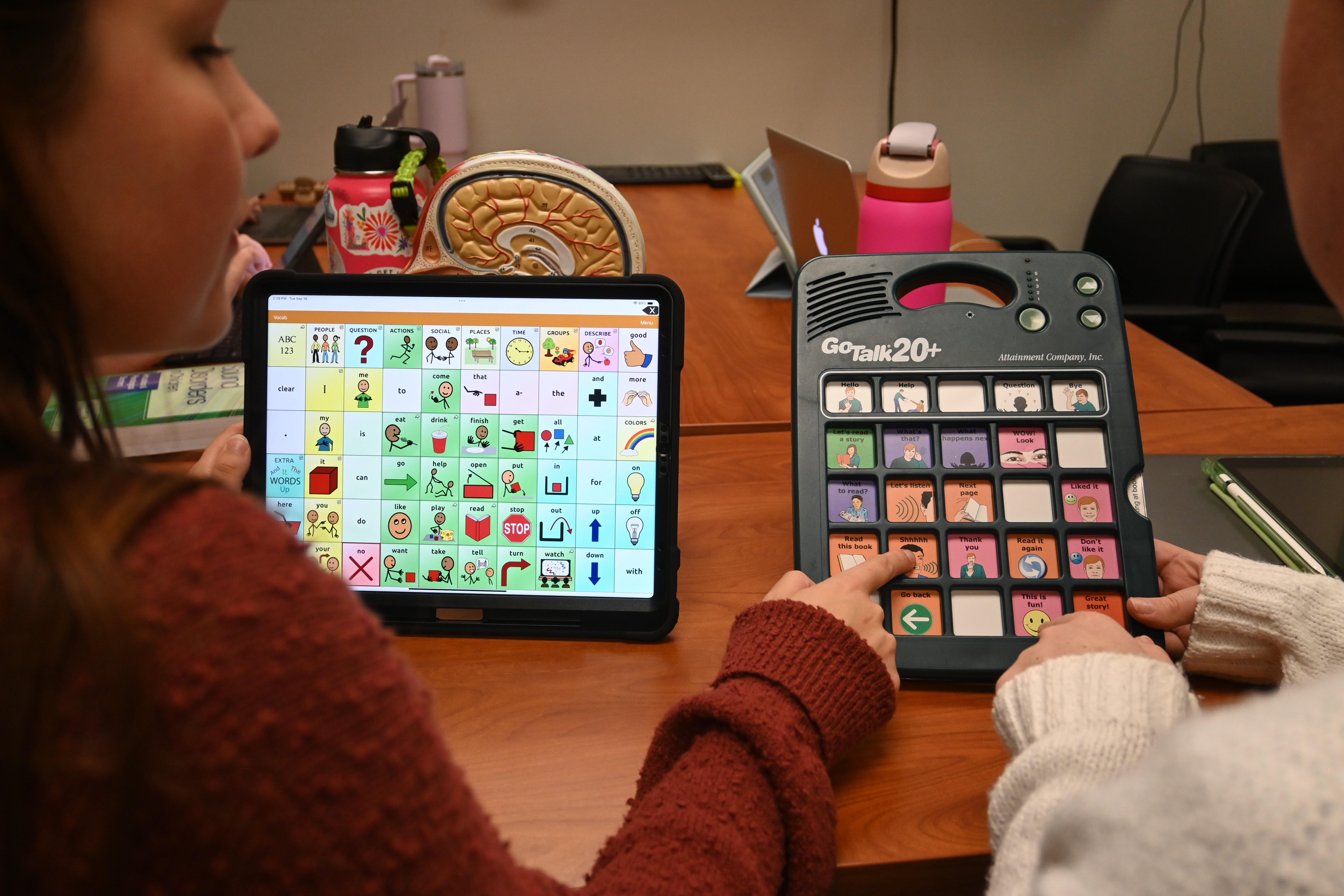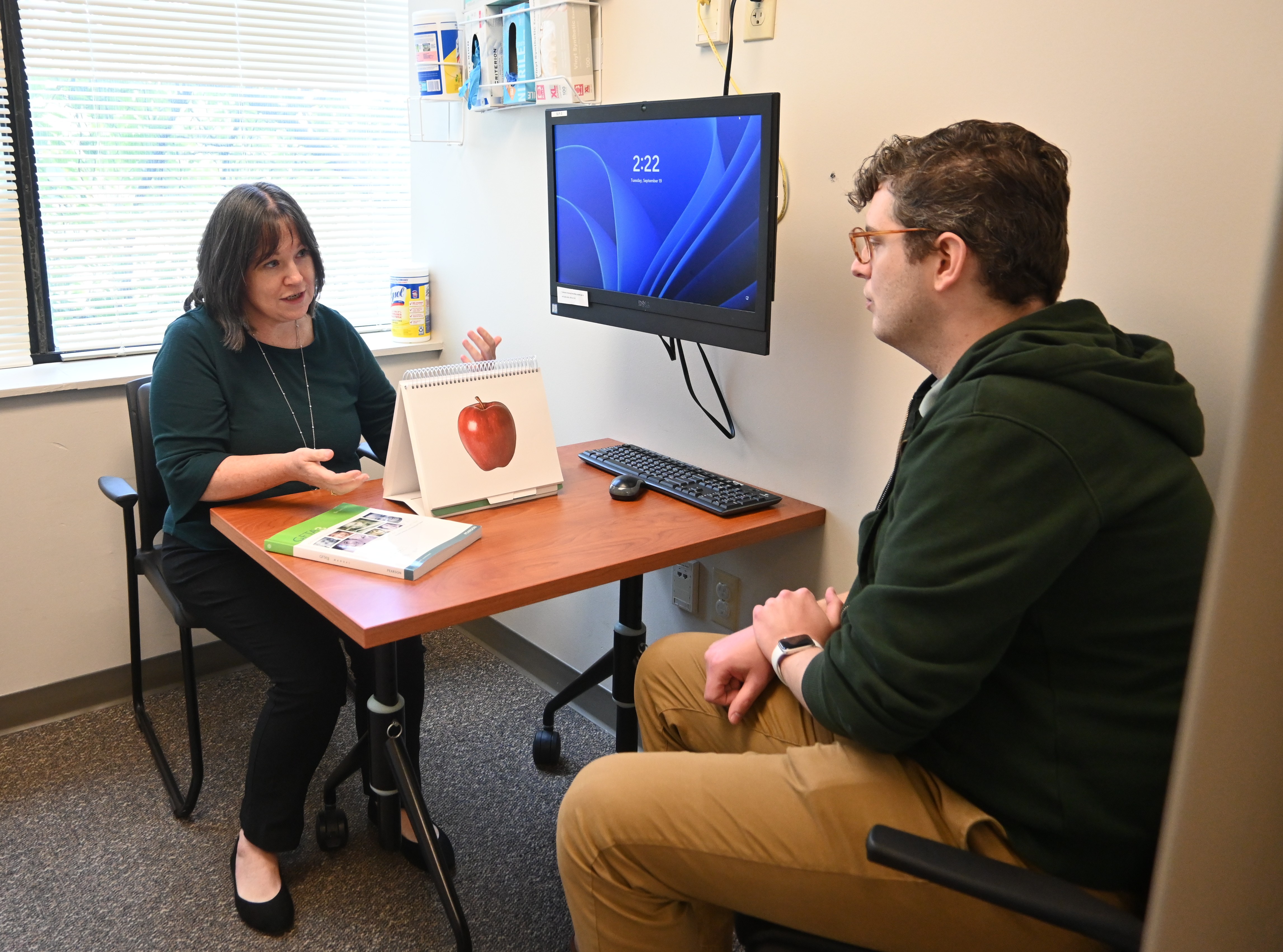Speak Up Early: How Early Intervention Transforms a Child's Speech Development

It’s not unusual for first-time parents with concerns about their child’s delayed speech development to be told to “wait and see.” It’s true that children develop speech at their own pace, and there’s a wide age range for when they begin to build communication skills - some start earlier, while others take a bit more time.
Those early years of life are the ones where children who may be having speech development issues can benefit the most from intervention. And, the experts at the Speech-Language Institute (SLI), Salus at Drexel University, can help.
“If your child does have a significant delay or disorder, you’re going to find that out from the evaluation by the speech-language therapist and receive the intervention needed,” said Lynette Dolente, MS, CCC-SLP, a SLI clinical educator. “And, if there is nothing to worry about, you have someone who is specialized telling you that.”
Every May, the American Speech-Language-Hearing Association (AHSA) recognizes National Speech-Language-Hearing Month. This monthlong celebration, previously known as Better Hearing and Speech Month, aims to raise awareness about communication disorders and the crucial role of speech-language pathologists (SLPs) and audiologists in providing treatment and support.
“Audiologists are instrumental in the early years of life to make sure that kids are hearing at an adequate level because they’re not going to develop language if they’re not able to hear,” said Dolente. “Language is the foundation of everything. If you don’t have good language skills, you’re not going to have good learning skills, you’re not going to have good social skills.”
Is your child on track? Language Milestones to Look For
So, what should parents be looking for if they suspect their child is not developing language skills at the appropriate time? Dolente suggests one red flag would be if the child is not producing any words past “momma” and “dada” by the age of 15 or 16 months.
In addition, if a child isn’t using gestures, making eye contact, or showing facial expressions to connect with others, it may be a sign they should be evaluated by a SLP and an audiologist.
“Also, babies who never cry can be one of two things,” said Dolente. “First, it could be that the parents are really on top of the baby’s signals and provide them with what they need. But for others, the baby’s lack of crying and initiation can really be a sign that something is a little more concerning.”
Yet another sign would be if a child is not showing interest in back-and-forth interaction, like singing songs. “A lot of that is the foundation of social communication, interaction and language,” said Dolente. “You learn the back and forth rhythm of communication. You learn to enjoy in wanting to initiate or respond to people seeking out your attention.”
A Century of Speech, Language and Hearing Progress
This year’s observance of National Speech-Language-Hearing Month is particularly special as 2025 marks ASHA’s centennial, an opportunity to showcase the vast impact of the SLP and audiology professions on society and how their work has evolved over the past 100 years.
 Some of the key aspects of National Speech-Language-Hearing Month include:
Some of the key aspects of National Speech-Language-Hearing Month include:
- Awareness: To increase the public’s understanding of communication and hearing needs, as well as the impact speech and language delays or disorders.
- Celebrating AAC: Highlighting individuals who use augmentative and alternative communication (AAC) devices and the professionals who support them.
- Recognizing SLPs and audiologists: The vital roles of both in assessing, diagnosing and treating communication and hearing issues.
- Promoting early intervention: Encouraging early detection and intervention for speech and language delays in children.
“Parents are much more informed these days, but also a lot more anxious,” said Dolente. “So, really getting in early to see a licensed and credentialed speech-language pathologist is important.”
Schedule an appointment with an expert at SLI today by calling 215.780.3150.